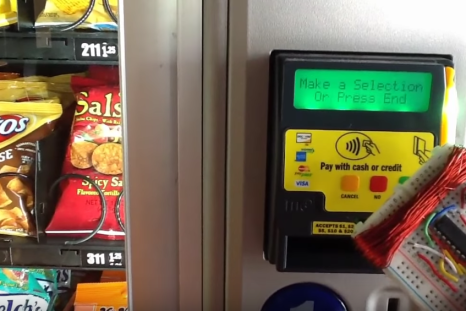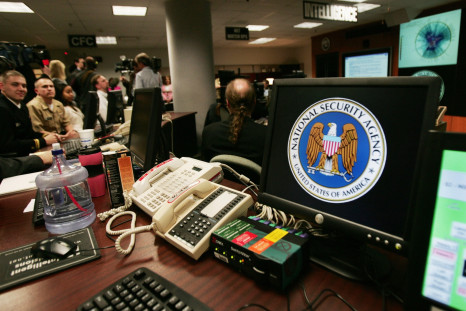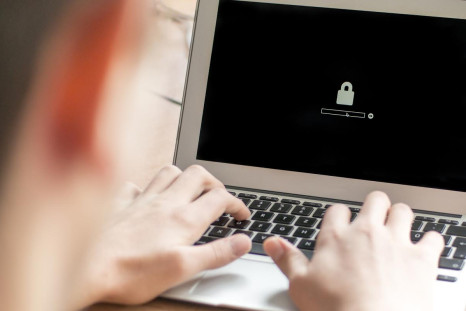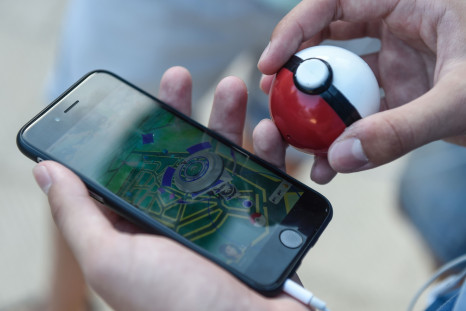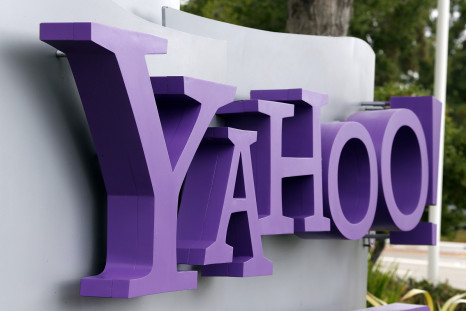Silk Road: Irish court orders extradition to US of alleged drug website administrator 'Libertas'
27-year-old Gary Davis is expected to appeal the court's decision.
Jason Murdock Aug 15, 2016
Twitter blocks hacker Guccifer 2.0 following DCCC data leaks
The documents leaked by Guccifer 2.0 have also been blocked by Wordpress.
India Ashok Aug 15, 2016
Hyatt, Starwood and other HEI-operated hotels hit by malware attack, customer data feared stolen
20 hotels have been affected by the malware which targeted payment card information of customers.
India Ashok Aug 15, 2016
Social media hackers pose as customer support accounts on Twitter, target Natwest bank users
Scammers surreptitiously lure victims to phishing sites to steal their account details.
India Ashok Aug 13, 2016
Suspected Russian hackers behind Oracle breach hit five more cash register firms
Hackers allegedly breach Cin7, ECRS, Navy Zebra, PAR Technology and Uniwell.
India Ashok Aug 12, 2016
Is the DNC hack bigger than we thought? FBI warns of 'long list' hit by suspected Russian attack
The US Democratic Governors' Association may have also been hacked.
Jason Murdock Aug 11, 2016
Pakistan's new cyber-security law could make bloggers, writers and even readers criminals
Pakistan has joined Saudi Arabia and China as the world's worst censors of the internet
Bina Shah Aug 11, 2016
Has your Instagram been hacked? Accounts flooded with porn to lure victims to adult dating sites
The hacked Instagram accounts have passwords and profile pictures altered.
India Ashok Aug 10, 2016
Hacker steals nearly two million accounts from Dota 2 developer forum
Database holds email addresses, usernames, passwords and IP addresses.
Jason Murdock Aug 10, 2016
Ransomware spam campaign targets US government and educational institutions
CryptFile2 belongs to the CrypBoss ransomware family.
India Ashok Aug 10, 2016
Hitler ransomware still in development mode deletes files and demands victims pay via phone top-up card
The suspected German-speaking hackers have misspelt ransomware as 'ransonware'.
India Ashok Aug 10, 2016
Cat-themed Android ransomware stealing SMS messages and encrypting files
The ransomware also lets hackers remotely send commands to the infected devices via a web-based control panel.
India Ashok Aug 10, 2016
Is Samsung Pay vulnerable to hackers?
Samsung has played down the reports, claiming a hack is 'extremely unlikely'.
Jason Murdock Aug 09, 2016
Met police are still running out-of-date Windows XP on thousands of computers
Extended support for the 15-year-old OS ended in April 2015.
Jason Murdock Aug 09, 2016
Oracle data breach: Russian cybercrime syndicate suspected in malware attack targeting over 300,000 systems
Password reset initiated for Micros customers after hackers launched malware attack.
India Ashok Aug 09, 2016
The NSA zero-day stockpile may only contain 'dozens' of vulnerabilities, researcher claims
Intelligence agencies collect unknown software vulnerabilities for their own use.
Jason Murdock Aug 08, 2016
Irish police launch probe after 'zero-day' attack hits computer networks
An Garda Síochána refused to elaborate further on the type of malware.
Jason Murdock Aug 08, 2016
Top 5 scary hacks that emerged from the Black Hat USA hacker conference
This year's conference has highlighted how hackers can manipulate every gadget and even the Internet of Things to launch attacks.
India Ashok Aug 06, 2016
UAE recruiting 'elite task force' of cyber experts to build mass public spying system
Researcher claims he was offered $20,000 a month to help build the tool for state surveillance.
Jason Murdock Aug 04, 2016
Hackers found selling US Social Security number, Netflix and email accounts for just $3
Access to social media accounts and dating websites is being sold for a couple of dollars.
Hyacinth Mascarenhas Aug 04, 2016
Banner Health cyberattack: Hackers may have accessed 3.7 million customers' records
Hackers may have credit card information of those who purchased food at Banner Health outlets.
India Ashok Aug 04, 2016
Carnegie Mellon university professor reveals why enforced password changes are a security risk
Mounting evidence shows mandatory changes often result in weaker credentials.
Jason Murdock Aug 03, 2016
Prisma Android: Millions fooled into downloading fake, dangerous versions of photo app
Cybercriminals target popular app and trick users into giving away personal information.
James Billington Aug 03, 2016
Scammers exploit Google SEO to deliver ransomware and online scam
The active malicious campaign abuses Google's featured snippets tool to display links to compromised websites.
India Ashok Aug 03, 2016
Hackers leak over 150 GB of sensitive patient data from Ohio urology clinics
The data dump includes names, addresses, phone numbers and treatments received by patients.
India Ashok Aug 03, 2016
Blizzard's Battle.net servers knocked offline following massive DDoS attack
The hacker group had claimed responsibility for the recent attack on Pokemon Go servers.
Hyacinth Mascarenhas Aug 03, 2016
Bitcoin price drops as hackers steal $65m from Hong Kong-based Bitfinex
Bitfinex confirmed the breach and said it had suspended trading, deposits and withdrawals of bitcoins.
India Ashok Aug 03, 2016
Malware found in 75% of top 20 commercial banks in the US, says SecurityScorecard
US financial sector 'very much at risk' of falling victim to Bangladesh Bank-style cyberheist.
India Ashok Aug 02, 2016
Pokemon Go: Israeli army bans soldiers from playing smartphone application amid cybersecurity fears
IDF officials fear popular game will compromise sensitive information or base secrets.
Jason Murdock Aug 02, 2016
Yahoo probing potential data breach as 200 million user accounts appear on Dark Web
A hacker known as 'Peace' previously listed the Myspace and LinkedIn hacks.
Jason Murdock Aug 01, 2016
Pages
- PREV
- 30
- 31
- 32
- 33
- 34
- 35
- 36
- 37
- 38
- NEXT














